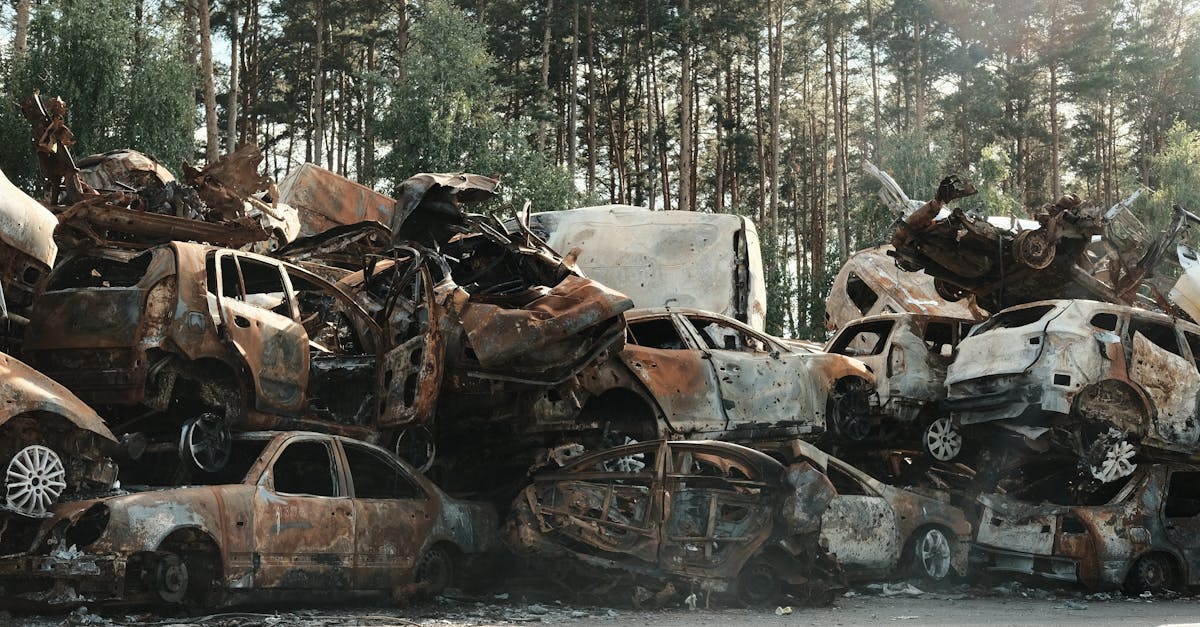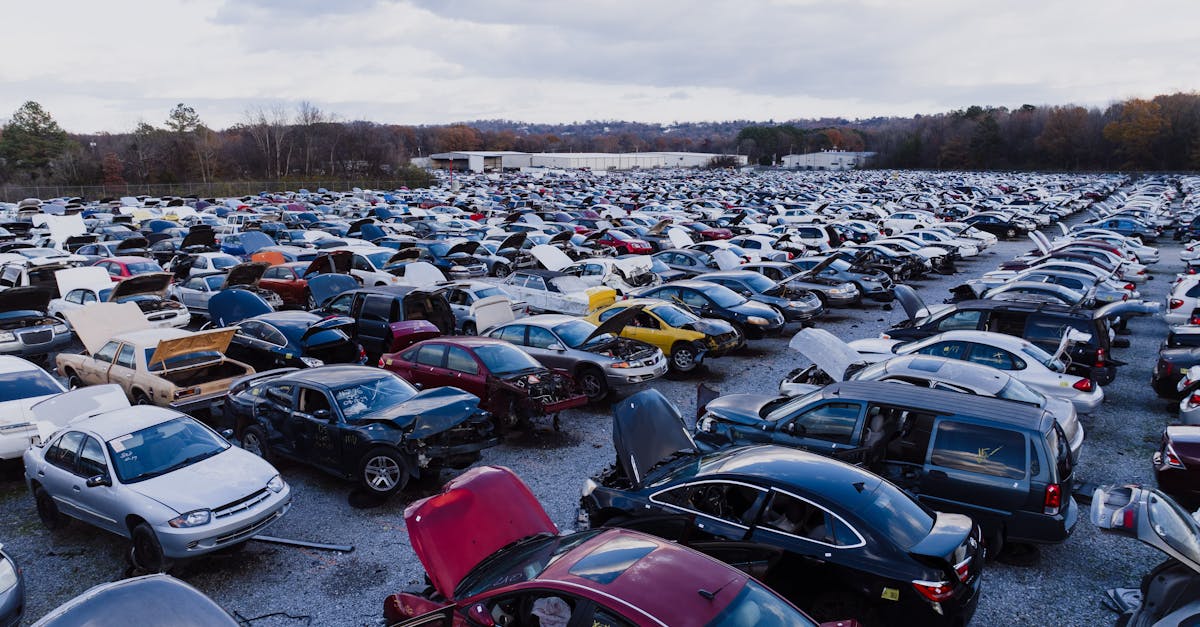Introduction: Navigating the Salvage Yard Landscape in 2025

As the automotive industry increasingly emphasizes sustainability and eco-friendly practices, salvage yards have become more than just destinations for junk cars—they’re pivotal players in responsible vehicle recycling. With advancements in technology and stricter environmental regulations, the landscape of salvage yards in 2025 offers both opportunities and challenges for vehicle owners seeking hassle-free disposal or quality used parts.
Recent shifts toward digital integration, including initiatives like our go-green efforts, have transformed how consumers locate and interact with salvage yards.
Understanding the Modern Salvage Yard Industry in 2025
Industry Growth and Trends
The salvage yard industry has experienced substantial growth, driven by increased demand for recycled auto parts and a heightened focus on sustainability. According to the Automotive Recyclers Association, the industry recycles over 12 million vehicles annually in the United States alone, reducing landfill waste and conserving natural resources. This growth is fueled by consumer awareness about environmental impacts and the rising costs of new vehicle parts.
Technological Advancements
Modern salvage yards leverage cutting-edge technology such as AI-driven inventory management systems, which enable real-time tracking of parts and streamline the disassembly process. Online platforms and mobile apps now allow consumers to search inventories, request quotes, and schedule pickups without visiting in person. These innovations improve transparency, efficiency, and customer experience, making it easier to source quality parts or dispose of old vehicles responsibly.
For more information on our process, visit our page to learn about what it means to say ‘yes’ to junk car removal.
Regulations governing salvage yard operations have become more stringent, focusing on environmental compliance and consumer protections. Recent updates include mandatory reporting of hazardous materials, stricter emission controls during disassembly, and certification requirements for facilities to demonstrate eco-friendly practices. Staying compliant not only benefits the environment but also ensures your transactions are lawful and secure.
Legal Considerations When Sourcing Old Cars
Title Transfer and Ownership Verification
Salvage yards, where you can find used auto parts in Chicago IL, typically handle title transfers, but owners should ensure all paperwork is accurate and complete to avoid future liabilities.
Environmental Regulations
Disposing of vehicles now involves strict adherence to environmental laws aimed at reducing pollution. This includes proper removal of fluids, batteries, and hazardous materials, along with recycling as many vehicle components as possible. Recent federal and state laws emphasize eco-conscious disposal, incentivizing yards with green certifications and environmentally sound practices.
Recent Legal Changes
One notable change is the standardization of environmental compliance standards across states, requiring salvage yards to hold certifications like ISO 14001 or Green Recycle Certification. These updates encourage facilities to adopt sustainable practices, which can influence your choice of where to sell or source parts from.
Eco-Friendly Disposal Methods and Industry Innovations

Recent Trends in Recycling and Disassembly
Salvage yards are increasingly adopting eco-conscious methods such as plasma arc cutting, which reduces waste and energy consumption, and solvent-free paint removal processes that minimize chemical runoff. Facilities now focus on maximizing material recovery—metals, plastics, and rubber—while minimizing environmental footprint.
Impact of Green Technologies
Government incentives, like tax credits for adopting green technologies, motivate yards to upgrade equipment and processes. For instance, some yards now use advanced fluid management systems that recover and recycle car fluids efficiently, reducing pollution and promoting sustainability.
Comparison Criteria
- Environmental Impact: Facilities employing green technologies with measurable reductions in emissions and waste.
- Recycling Rate: Percentage of vehicle components recycled versus disposed of as waste.
- Facility Certifications: Industry credentials indicating compliance with environmental standards.
- Availability of Eco-Friendly Parts: Parts manufactured or preserved with sustainability in mind.
- Customer Reviews and Reputation: Feedback emphasizing eco-conscious practices and service quality.
- Pricing Transparency: Clearly outlined costs and fair pricing models.
- Online Search and Booking Capabilities: User-friendly digital platforms for locating and scheduling services.
How to Find Reputable Salvage Yards in 2025
Utilizing Online Directories and Platforms
Websites like SalvageYardFinder 2025 and auto recycling apps have become essential tools. They provide updated listings, detailed profiles, and customer reviews. Using filters such as location, certifications, and eco-friendly practices helps narrow your options to yards aligned with your values and needs.
Leveraging Customer Reviews and Ratings
Platforms like Google and Yelp offer real user feedback, revealing insights into service quality, transparency, and eco-consciousness. Pay attention to recurring themes—positive ratings for environmentally responsible practices or complaints about transparency can guide your decision-making.
Checking Certifications and Eco-Credentials
Look for industry certifications such as ISO 14001 or Green Recycle Certification. These credentials indicate a yard’s commitment to sustainable practices. Many yards now display these badges prominently on their websites, making it easier to verify their eco-credentials.
Comparison Criteria
- Online Presence and Website Quality: User-friendly, informative, and transparent online platforms.
- Customer Feedback: Positive reviews emphasizing professionalism and eco practices.
- Certifications and Eco-Credentials: Recognized environmental standards.
- Range of Services: From vehicle disposal to parts sales and eco-friendly disassembly.
- Location Proximity: Ease of access and transportation costs.
- Pricing Options: Transparent quotes and fair pricing models.
- Availability of Online Quotes or Booking: Convenience and real-time service options.
Tips for Sourcing Quality Parts from Salvage Yards
When sourcing parts, inspection is key. Use current diagnostic tools to assess wear, corrosion, and compatibility. Always ask about the disassembly process and environmental treatment—knowing parts are handled responsibly adds peace of mind. Additionally, inquire about warranties or guarantees, which are increasingly common as yards strive to build trust in salvaged components.
Safety Standards and Industry Best Practices in 2025
Safety remains paramount. Salvage yards adhere to rigorous protocols for worker safety and customer protection, including mandatory PPE (personal protective equipment) and training programs. Facilities comply with updated OSHA and EPA regulations, ensuring that disassembly, transportation, and storage processes minimize risks and environmental impact.
Future Trends: What to Expect in Salvage Yards for Old Cars
Integration of AI and Machine Learning
AI will continue to optimize inventory management, predicting parts demand and automating disassembly sequences for efficiency. This reduces waste and speeds up service delivery, benefiting both yards and customers.
Expansion of Eco-Friendly Technologies
Innovations like plasma arc cutting and solvent-free cleaning will become standard, further reducing environmental impact. Additionally, recycling facilities will incorporate renewable energy sources, cutting emissions even further.
Blockchain for Parts Provenance
Transparency will improve through blockchain technology, enabling buyers to verify the history and authenticity of salvaged parts. This enhances trust and accountability in the industry.
Growing Consumer Demand for Sustainable Parts
As awareness rises, consumers will increasingly seek eco-friendly parts and transparent recycling practices. Salvage yards that prioritize sustainability will gain a competitive edge by meeting this demand.
Conclusion: Making Informed Decisions in 2025
Finding a reputable salvage yard today involves a combination of thorough research, leveraging digital tools, and prioritizing eco-conscious practices. Ensuring legal compliance, examining certifications, and understanding industry innovations empower you to make responsible choices that benefit both your wallet and the environment. Embrace the digital age—use online directories, reviews, and industry resources to connect with yards committed to sustainable and transparent operations. Your responsible vehicle disposal or parts sourcing starts here, paving the way for a greener automotive future.
Ready to turn your unwanted vehicle into quick cash? Kelly Car Buyer, Inc makes it easy to sell almost any type of vehicle—including cars, junk cars, trucks, semi-tractors, and trailers—regardless of condition. Don’t wait to get the best offer—click now to discover how simple and hassle-free selling your vehicle can be, and enjoy fast, top-dollar payouts today!








